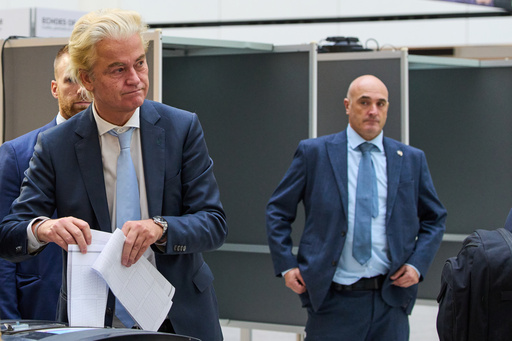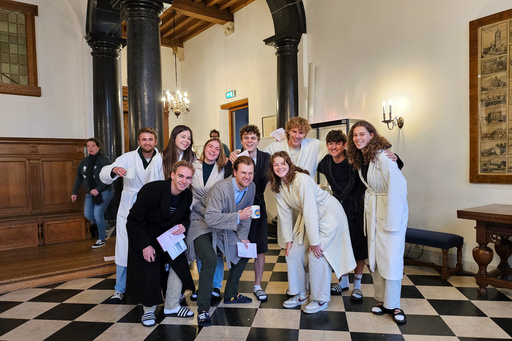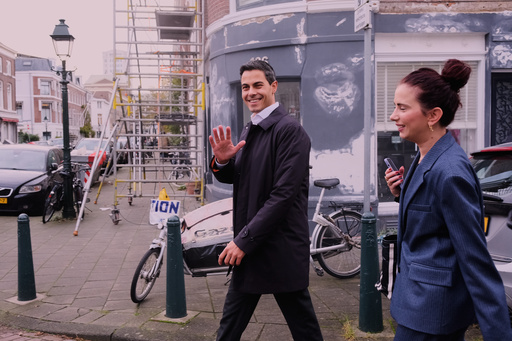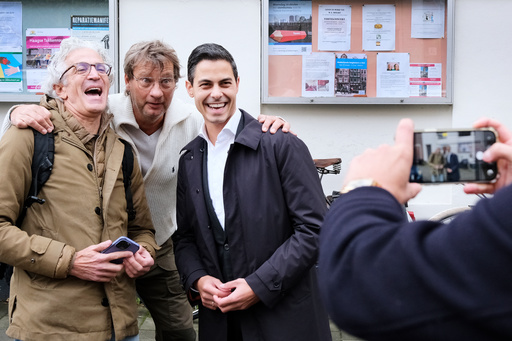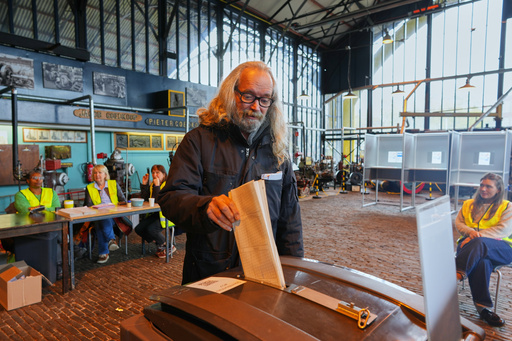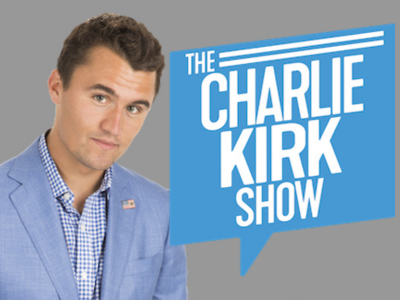Dutch vote in a knife-edge election focused on housing and Wilders
News > Top Stories

Audio By Carbonatix
12:20 AM on Wednesday, October 29
By MIKE CORDER and MOLLY QUELL
THE HAGUE, Netherlands (AP) — Voters and leading contenders cast their ballots across the Netherlands on Wednesday in a close-run snap election called after anti-Islam lawmaker Geert Wilders brought down the last four-party coalition in a dispute over a crackdown on immigration.
The campaign echoed issues that resonate across Europe, focusing on how to rein in migration and tackle chronic shortages of affordable housing.
But in a country where coalition governments are the norm, it's unclear if parties will work with Wilders again, even if his Party for Freedom repeats its stunning victory from two years ago.
Mainstream parties have already ruled that out, arguing that his decision to torpedo the outgoing four-party coalition in June in a dispute over migration underscored that he is an untrustworthy partner.
“It’s up to the voters today,” Wilders said after voting in the cavernous atrium of The Hague City Hall, surrounded by security guards. “It’s a close call … four or five different parties. I’m confident.”
Frans Timmermans, the former European Commission vice president who now leads the center-left bloc made up of the Labor Party and Green Left, took his black labrador to a polling station in his home city of Maastricht in the southern Netherlands.
“It’s going to be so close so let’s hope we come out as first, because that is the only guarantee to avoid a right wing government,” he told reporters.
The vote comes against a backdrop of deep polarization in this nation of 18 million, violence at a recent anti-immigration rally in The Hague and protests against new asylum-seeker centers.
Olga van der Brandt, 32, said she thinks voters may turn their backs on parties that made up the last right-wing government led by Wilders.
Her hope is that “this time there will be a more progressive party who can take the lead.”
Christian Democrats leader Henri Bontenbal agreed that a fundamental shift in Dutch politics was at stake.
“What we have seen in the last two years is a political landscape with right-wing populism, and the question is, is it possible to beat populism by decent politics,” he said.
In-fighting between parties in the last coalition led to criticism that the Netherlands, long a prominent voice within the European Union, was sometimes seen as not fully engaging with the continent as it had done under longtime leader Mark Rutte, who is now NATO's secretary-general.
The chief economist at the Center for European Reform think tank, Sander Tordoir, said that “Europe cannot afford another Dutch government that drifts and is absent in the European debate.”
Tordoir noted that the Netherlands is one of the biggest and better performing eurozone economies and that if it “remains missing in action, Europe’s single market, defense effort and economic security will suffer.”
Voting was taking place at venues from city halls to schools, as well as in historic windmills, churches, a zoo, a former prison in Arnhem and the iconic Anne Frank House museum in Amsterdam.
Among those first in line at the ornate former City Hall in the central city of Delft, wearing bathrobes and carrying mugs of coffee, was a group of students who live together and study at the local university.
“It’s a house tradition” to vote together, Lucas van Krimpen told The Associated Press.
In Amsterdam, the Red Light Jazz Radio Station opened its doors for voters.
The station plays music and hosts news programs in Amsterdam's famed Red Light District. “Come vote, especially come vote with us because it’s fun,” founder Maarten Brouwer said.
Polls suggest that Wilders’ party, which is calling for a total halt to asylum-seekers entering the Netherlands, remains on track to win the largest number of seats in the 150-seat House of Representatives. But other more moderate parties are closing the gap and pollsters caution that many people wait until the very last minute to decide who to vote for.
Polls close at 9 p.m. followed by an initial exit poll.
The Dutch system of proportional representation all but guarantees that no single party can win a majority. Negotiations will likely begin Thursday into the makeup of the next governing coalition.
Rob Jetten, leader of the center-left D66 party that has risen in polls as the campaign wore on, said in a final televised debate that his party wants to rein in migration but also accommodate asylum-seekers fleeing war and violence.
And he told Wilders that voters can “choose again tomorrow to listen to your grumpy hatred for another 20 years, or choose, with positive energy, to simply get to work and tackle this problem and solve it.”
Wilders rejects arguments that he had failed to deliver on his 2023 campaign pledges despite being the largest party in parliament, blaming other parties for stymying his plans.
___
Associated Press writer Lorne Cook in Brussels contributed to this report. Kriti Swarup contributed from Amsterdam.
